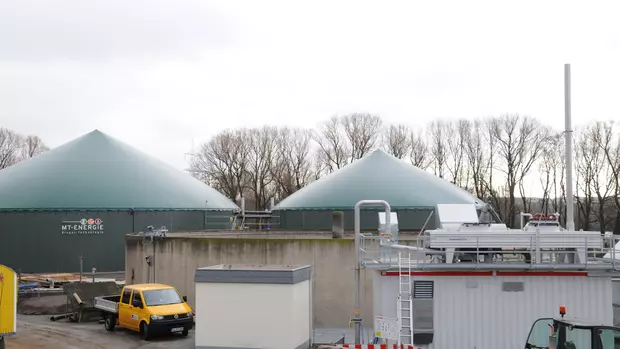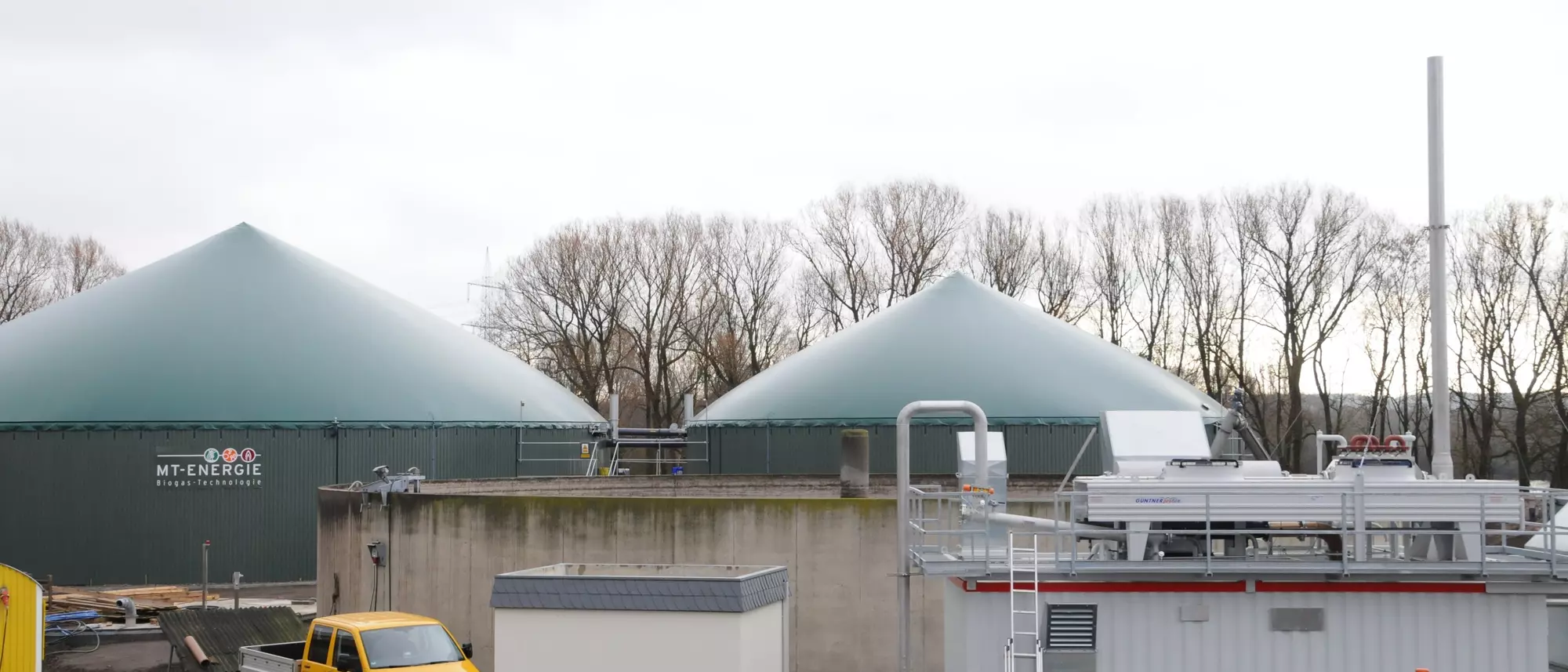
New milestone for the energy transition in the region: After a construction period of just under seven months, Stadtwerke Gießen recently started trial operation of the new biogas plant in Heuchelheim.
Biogas plants have valuable properties for the electricity market of the future. This is one of the key statements made by the Agency for Renewable Energies (AEE) in a recently published background paper. One of the most important theses put forward by the AEE: Bioenergy can "compensate well for the weather-dependent generation of solar and wind energy plants". This refers to the use of bioenergy in combined heat and power plants (CHP plants). Combined heat and power plants (CHP) are characterised by the fact that they can be flexibly controlled.
Stadtwerke Gießen (SWG) also believes that relying solely on photovoltaic and wind power plants for the energy transition is the wrong approach. "We not only need electricity from wind and solar power, but also types of generation that are capable of meeting base load requirements and are also characterised by a positive environmental balance," emphasises SWG CEO Reinhard Paul.
Utilising regional resources
SWG has been focussing on the expansion of CHP in Giessen and Central Hesse for several decades. Regional biogas production is set to play an increasingly important role in this context in future. "Instead of exclusively using fuel from the Middle East or Russia, we want to utilise existing resources in the region to produce electricity and heat on our own doorstep," explains Reinhard Paul. SWG's biogas plant in Großen-Buseck has been proving that this model works successfully since 2011. Now a second site is being added: Heuchelheim. Construction work began in mid-May and the new biogas plant on the land of farmers Hans and Thorsten Klug went into trial operation at the end of November.
2 million kilowatt hours of electricity per year
The modern, highly efficient plant is one of the most important components of the energy revolution in the region and helps to save climate-damaging CO2. Short travel and delivery routes as well as an optimal mix of biomass with a high proportion of liquid manure for the Heuchelheim site played a key role in the planning. The special feature: The plant was designed to work efficiently with the biomass available on site. The slurry is channelled directly from the barn into the biogas plant's fermenter. In addition, the farmers also supply feed residues and solid manure as biomass. The short distances ensure that local residents do not have to worry about odour nuisance. And for the farmers, it has the great advantage that they can spread the nutrient-rich fermentation residues as fertiliser on their fields - and can therefore dispense with a large proportion of artificial fertiliser.
As in Großen-Buseck, the Technical University of Central Hesse (THM) was involved in the project. "Together with THM, we are optimising the fermentation processes. This enables us to achieve even greater efficiency, as demonstrated by the biogas plant in Großen-Buseck. It is one of the most efficient in Germany. A success that we want to build on in Heuchelheim," emphasises SWG project manager Stefan Seibel.
In future, a combined heat and power plant (CHP) on the Klug farmers' site will generate more than 2 million kilowatt hours (kWh) of electricity per year. That is enough for around 600 households. The CHP plant will also produce over 3 million kWh of heat per year - enough for around 160 single-family homes. The heating energy will be used to supply the Rinn & Cloos industrial estate and the existing heating network in the area of the Heuchelheim swimming pool.
SWG plans to realise further projects in the region in the coming years, such as in Großen-Buseck and Heuchelheim. Matthias Funk, Head of the District Heating Department at SWG, assures us that biogas as a fuel is part of an intelligent energy mix and points out: "On the scale that we use biogas, it makes perfect sense - from an economic point of view and in the interests of the population in the Central Hesse region."

